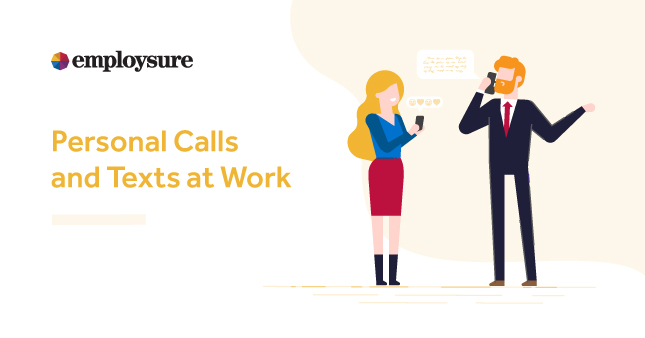
Very few employers like the idea of their employees making or taking personal calls and texts during business hours – it is rarely work related, and takes the employee’s mind off the job. Not only that, but it can impact on productivity, performance and service – especially if your employees are in customer view.
So how do you manage personal calls and texts in your workplace?
While some employers believe all personal phone use during work hours should be prohibited, in reality this may not be practical. So firstly, it is a good idea to determine under what circumstances they are allowed, such as:
family matters or emergencies
calls from a child’s school or carer
it may even be that an employee is expecting some news and providing leeway to make a quick call to find out will help them to re-focus on work
Implementing a policy
While any of the above situations may warrant personal calls or texts, if they become perpetual you will need to take action. Spending generous company time and resources focusing on something other than work will have detrimental effects on the individual’s performance, as well as the business itself. To assist in managing this, you need a policy in place to clarify the rules.
Some things to consider
If employees are using company equipment to make or take calls, you can introduce restrictions on the use of this company property. Decide whether some limited personal use is tolerated, or whether the policy strictly prohibits employees from using your business equipment for any non-work related, personal purpose. Make sure that all employees are aware that the amount of communication on business devices, including telephone calls, is monitored.
Your policy can state that during normal working hours, personal calls and texts must be limited and will not interfere with carrying out normal duties. Further, the policy can include what consequences will follow in the event of a breach – this is usually disciplinary action, according to your disciplinary procedure.
Common policies place limits on personal phone use, for example, mobile phones cannot be used during business hours aside from breaks and lunch. Other policies could encourage employees to be ethical, asking them to limit calls to real emergencies and to keep their personal phones on silent – so not to disturb others.
The best protection for your business is to have a comprehensive policy outlining personal phone use at work, providing guidelines to employees on what is and what is not acceptable.
Speak to an Employsure specialist today on 1300 651 415 about implementing a tailored mobile phone policy for your workplace.







